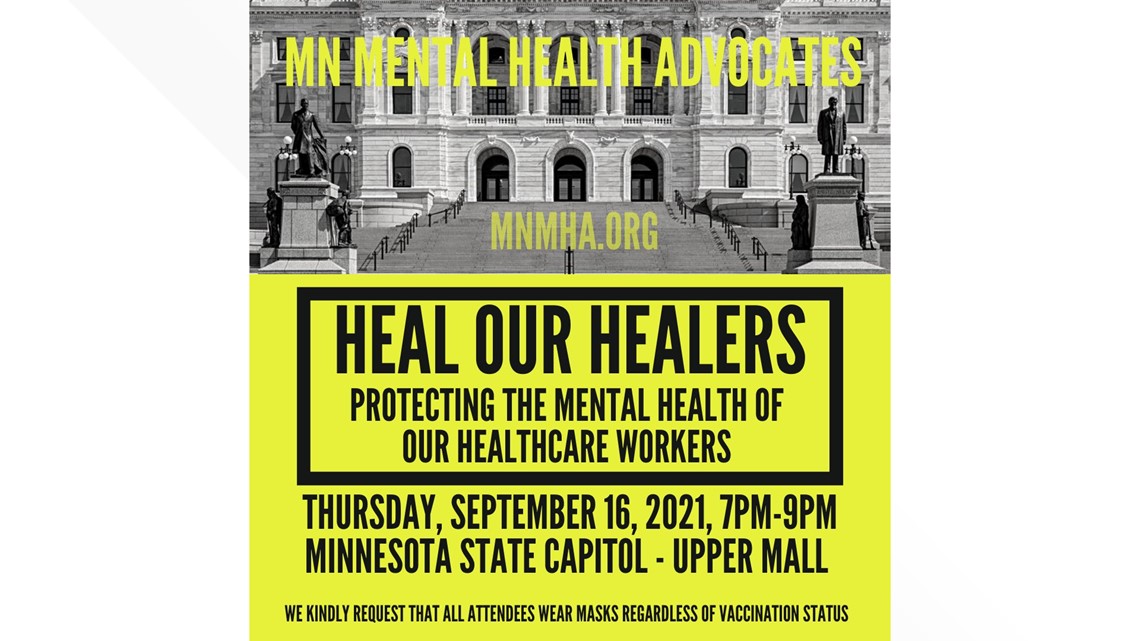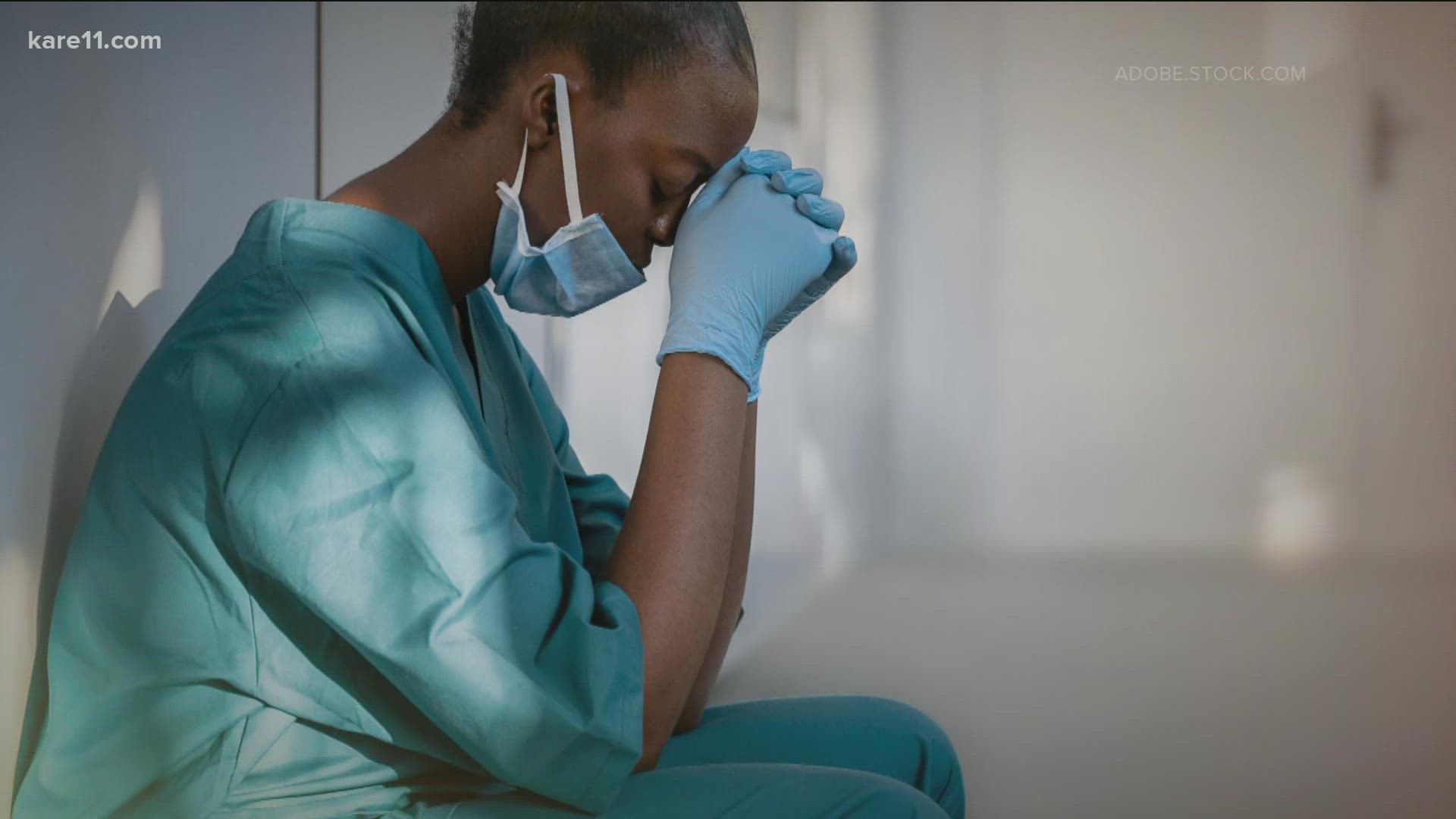GOLDEN VALLEY, Minn. — Dr. Michelle Chestovich doesn't miss a beat when you ask why she became a doctor.
"I love science and I loved the thought of helping people," she says.
It was a family tradition that ran strong - both her folks and all of her siblings heeded the call to heal.
Dr. Gretchen Wenner Butler was a radiologist, and Michelle's youngest sister.
We say was because Gretchen, at the age of 36, died in March.
"She had just come off a call weekend and she worked crazy long hours so she was stressed and exhausted," Michelle says. "And I think for my sister, she didn't realize how close she was getting to the edge."
Gretchen was a devoted daughter, sister, wife and mother. She was a champion in her work, Teaching Resident of the Year and Radiology Resident of the Year.
And yet, Gretchen died by suicide.
"There are just a lot of expectations, not only with work, but as a mom, we put a lot of expectations on ourself and what we do, what we do with stress, we stuff it, which is super not healthy," Michelle says. "I do think that is what happened to my sister."
Roughly one doctor dies by suicide every day in this country, twice the rate as the general population.
And for women, that grim fact is worse. Female physicians were nearly three times as like to die by suicide than the general population.
"What this really says to me is we have a lot of changes to make," Dr. Kellie Stecher says.
Stecher is an OBGYN, and a fierce advocate for women in medicine to be able to say they need a break, or, at the very least, they need to be able to say they need to talk to a counselor.
She is an advocate for this, because while it may seem simple for a doctor to ask for mental health help, they usually don't.


"A lot of the talk I hear nationally is that people are afraid to come forward," Stecher says. "They are afraid this is going to have ramifications on their licensure and they won't be able to work."
About 90% of state licensing applications ask about mental health, even past bouts with common issues like depression and anxiety. The result is doctors not willing to risk a visit to a counselor or therapist
In fact, a 2016 survey in General Hospital Psychiatry showed that half of the female doctors asked believed they needed mental health help but didn't get treatment for fear of how it could affect their license.
Dr. Stecher is working to reform the license questions here in Minnesota, so they don't just ask a blanket question about mental health over the last five years, but focus on the doctor's mental health at present.
"'Do you currently have one of these issues' I think is a more appropriate way to have discourse around it, because, if you have post partum depression or anxiety three years ago, I don't think there is any reason you need to feel like you would be on probation or a restricted license," Stecher says.
Michelle never gets to know if something like getting help was possible, or would have saved her sister.
But she does know...
"We need to do something. This can't keep happening."
And she can't help but look back at her sister's life, filled with love and accomplishment, but filled too with dangerous unwritten rules for female doctors to be able to do it all.
"There is just kind of a deep sadness that certainly remains…there's an anger, there's an anger at the whole system," Michelle says. "Again, I don't think if my sister had been in a different profession that she would have died. And, again, do I know that 100% to be true? No. And yet I think the stress and struggle she had with her career as a physician highly contributed to her death."

